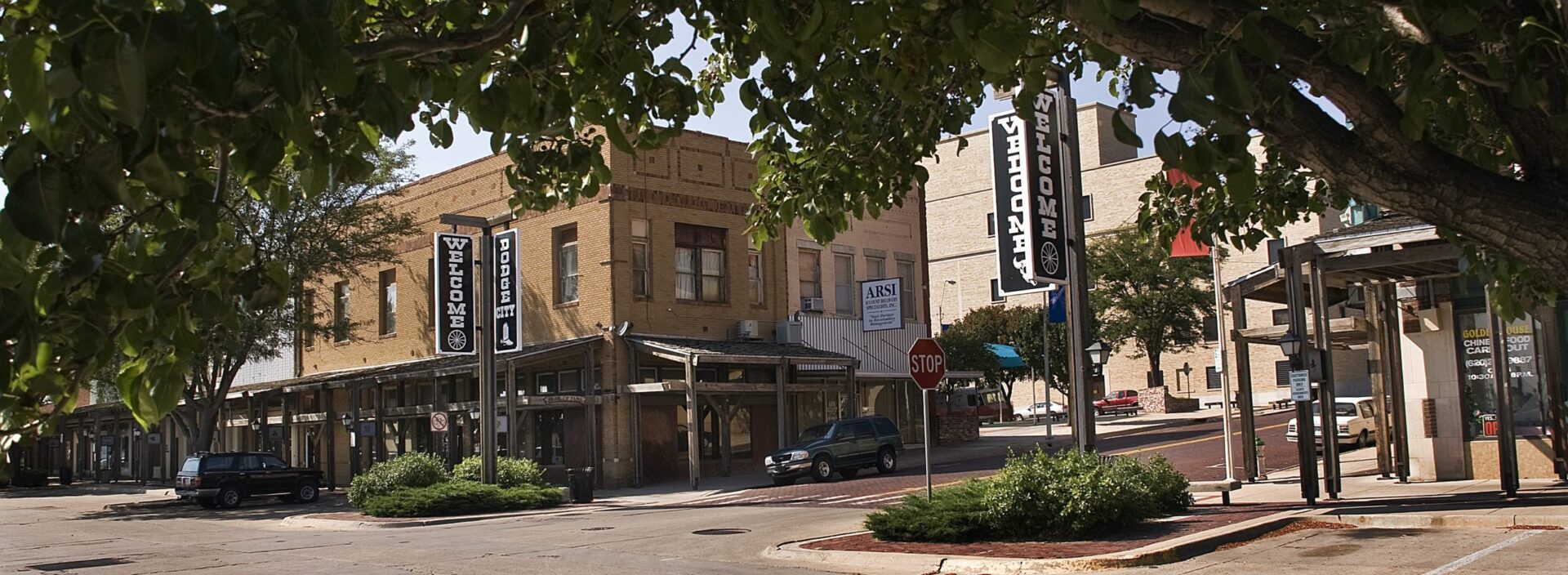Jackson, MI. As a college professor and reader of Wendell Berry, I’ve long been concerned about the dominant narrative of “upward (and lateral) mobility” that draws students to higher education. These concerns led Jack Baker and me to write a book that tries to re-imagine these narratives so that colleges and universities might educate students to return home and have the skills and virtues required to tend their places well. If we were addressing the supply side of the problem, what about the demand side? What if there just aren’t many opportunities for students to return home and do meaningful work?
Lead for America is an organization dedicated to addressing this latter problem. As their mission statement puts it, “Lead For America exists to ensure that our nation’s most dynamic and diverse leaders are working on our communities’ toughest challenges.” This work takes several forms, but one of their main initiatives involves pairing college graduates with local governments or civic organizations so that they can get a taste for public service and meaningful work. Through such efforts, they are seeking to reverse the brain drain that has left too many American communities shorthanded and stranded too many young people in high-paying but unsatisfying careers.
Two of the co-founders of this organization, Joe Nail and Reed Shafer-Ray, answered my questions about their work and what it might take to encourage more young people to invest their energy in addressing the needs of their places.
Bilbro: Can you share a bit about your personal backgrounds? What motivated you to work with Lead for America on these challenges?
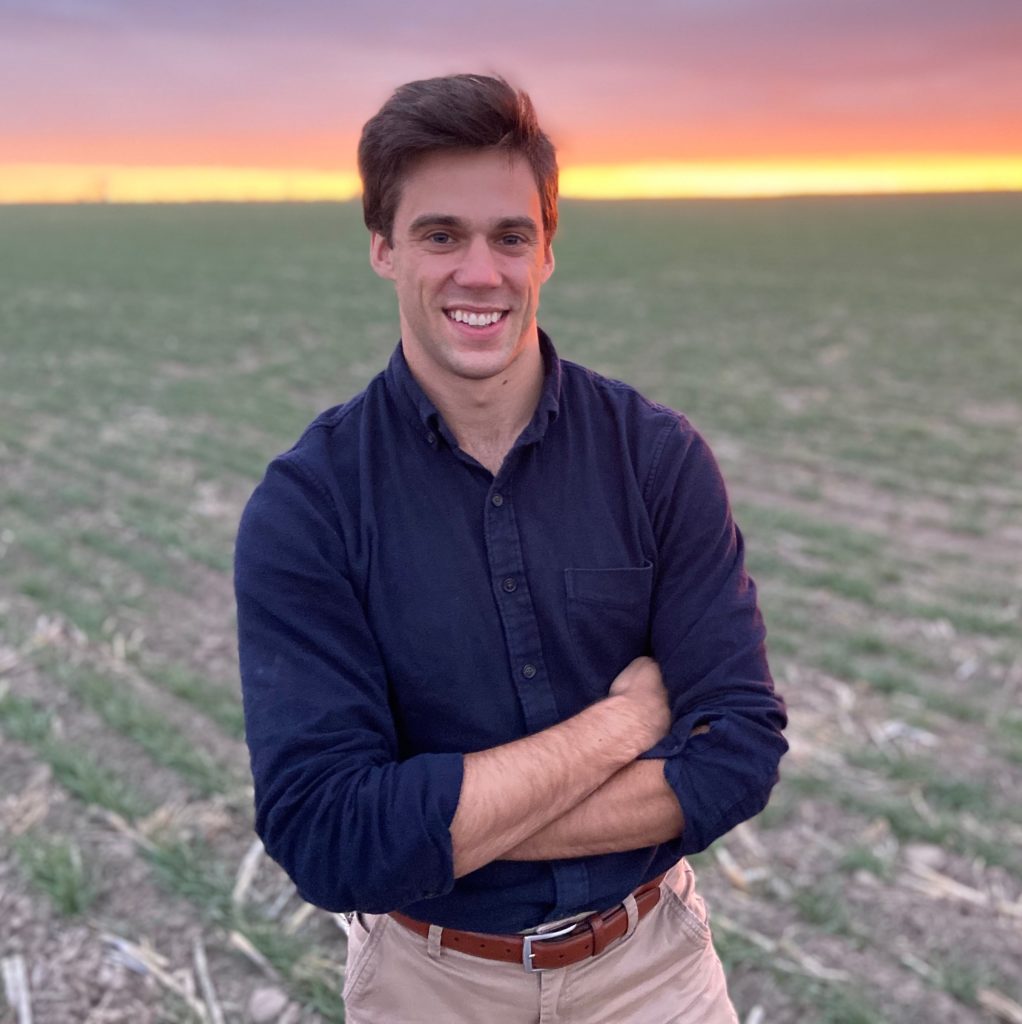
Nail: I grew up in a Kansas City suburb that had excellent schools and safe neighborhoods. As the middle child of two loving parents, life was pretty simple and pretty great. But when my dad deployed to Afghanistan my sophomore year of high school, I was unexpectedly put in a position of responsibility. My older brother had just started college, which meant that I was often asked to help watch or chauffeur my younger siblings and help care for my older sister who has a developmental and intellectual disability. We made it through those twelve months okay because of a strong community, generous neighbors, and being blessed to have my Mom stay home with us for much of my Dad’s time away.
It was during that year that I began to understand just how fortunate I, and we, were. I began to appreciate that, not too far away in other parts of Kansas City, and certainly in other places across Kansas, other kids did not have the same opportunities I did. And I read about the atrocities happening to children and families in other parts of the world––including in the war-torn communities not far from where my Dad was overseas. My family had never had the resources to travel outside the U.S. growing up. But I finished that year determined to find a way to see more of the world, and the problems facing it, in hopes of finding my place.
That next winter, I was one of six young Americans selected for the Indonesia U.S. Youth Leadership Program. I spent a month in Indonesia that summer, and a year in Germany between high school and college on a Congress Bundestag Youth Exchange scholarship. Those experiences had a profound effect on me. This may be cliche, but it was only after witnessing abject poverty on the streets of Jakarta that I truly began to understand the magnitude of just how much opportunity I had been born into, not earned. It was only after visiting villages on the rural islands of Bangka and Belitung that I began to understand what true, selfless dedication to community could look like. And it was in Germany that I saw a country that had moved––in just 75 years––from quite literally exterminating people like my sister as a prelude to the Holocaust, to deciding to accept refugees due to a collective moral conviction that it was the right thing to do.
Growing up and graduating from a Kansas high school, I had internalized the ethos that success required leaving the state and never coming back. And preferably it entailed working in business in a big, coastal city far from the family and the community that raised me. During my year in Germany, I began to see just how transformative public institutions could be with moral and dynamic leadership at the helm. I missed Kansas and my family terribly. And I was determined, for the first time, to return.
In college, I tried to surround myself with others dedicated to their communities, to their home states, and to public service. But a few years into college, I started noticing a disturbing trend. When it came time for friends to determine their next step, few were choosing careers in public and civic leadership, and even fewer were moving home or to the communities that could most benefit from their talents. This was not because their convictions had changed, but rather because the pathways to act on them appeared few and far between. And those that did exist seemed to lack training, mentorship, and any guarantee of responsibility or, yes, a little societal status. I knew my peers wanted to serve. I knew our country and its many communities were facing significant challenges. And I believed that if we had the right, locally rooted leaders working on those challenges we might just be able to fix them. I set out to start Lead For America to change the narrative that success requires leaving your community and family behind and to build a civic leadership force of outstanding young people in every corner of our country.
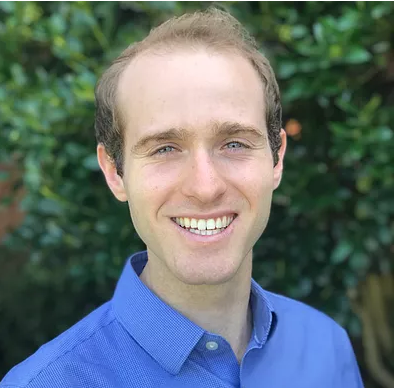
Shafer-Ray: I grew up in Norman, Oklahoma, and first started thinking about the importance of community leadership when a tornado hit the neighboring town of Moore in 2013, killing seven elementary school children when their school collapsed on them. The reaction from the governor and state legislature was to do nothing to protect future students required to be in school during severe weather, so I got involved in a petition drive to build storm shelters in public schools. The initiative failed to garner the necessary number of signatures, but I felt the powerful potential of local institutions to protect (or fail to protect) its most vulnerable residents.
It was this encounter that led me to further grassroots change-making work, organizing biannual lobbying initiatives at the State House in Massachusetts to support legislation especially intended to benefit young people. During my senior fall, I noticed a disturbing trend; many of my friends who had been passionately involved in community building initiatives, some of whom I remember holding aspirations of changing the world for the better when they first arrived on campus, started taking jobs at the biggest corporations in the biggest cities in the country. With the country facing so many challenges — rising deaths of despair, the existential threat of climate change, pervasive inequality based on race and class, etc. — most of the best and brightest were selling out to work in minimally impactful industries and leaving behind their communities that needed the most help.
Our culture and institutions of higher education in particular are sorting our talent away from the communities that need it most. And we are told that success looks like interminably climbing a lonely career ladder to attain a sense of superiority over others. Lead For America is about providing an alternative to this value system, and in so doing cultivating the commitment to service, community, and relationships that is necessary to build a better world.
Bilbro: Lead for America is a nonprofit organization that is directly tackling the problem of brain-drain or outward migration from America’s small towns and communities. On the other hand, you advocate for political solutions like a domestic GI Bill. What can nonprofits do that politicians can’t, and what can politicians do that civic organizations can’t? What might an ideal both/and approach look like?
Nail and Shafer-Ray: To the first point: we start with the local, because we believe that a strong nation requires strong communities. As Tocqueville wrote in Democracy in America, our municipal institutions are the strength of free nations and the primary schools of democracy.
And we also believe that strong communities require a healthy interplay of civic associations (like Lead For America) and government. Again referencing Tocqueville, free associations outside of government are essential for cultivating the values necessary for a flourishing democracy: “feelings and opinions are recruited, the heart is enlarged, and the human mind is developed by no other means than by the reciprocal influence of men upon each other” (Part II Section II Chapter V).
Tocqueville warns that without these democracy-building institutions, the government will take over the functions of associations, stifling the popular voice, atrophying civic competency, and replacing a moral value system providing for mutual support with one promoting isolated individualism (Part II Section II Chapter V).
To answer your question directly, we believe that nonprofits are unique in their ability to 1) provide sources of community gathering and a vibrant civic life that is more intimate, visceral, and communal than government programs (e.g. rotary clubs, Community Renewal International in Shreveport, etc); 2) provide a vehicle for sustained and institutional advocacy; and 3) pilot interventions that are too novel, too risky, or too politically unpopular for wide-scale government investment. As an organization that was designed to reach national scale from the start, we will focus on number three.
Relatively free from centralized decision-making and bureaucratic constraints, nonprofits and social ventures can innovate and experiment with practices tailored to their communities’ specific problems, and take chances on solutions that may be unproven or politically unpopular. Because nonprofits are usually dependent on philanthropic support from stakeholders proximate to their work, they are also usually motivated to prove out their impact and must adapt quickly when current strategies aren’t working.
On the other hand, few if any nonprofits have reached major scale without substantial government intervention. Local, state, and national governments command vastly greater resources than most nonprofits, and it is their financial support that is usually necessary to build a statewide or national program. Governments ideally should play the role of scouting out the most creative and effective solutions from nonprofits and academia, and then collaborate with nonprofit leaders and domain experts to provide resources necessary to reach as many people in need as possible. Oftentimes, such partnerships can be mutually complementary — nonprofits and social ventures can manage the implementation and innovation of a community initiative, while governments can assist with the finances and oversight.
Governments also can play a key role in amplifying what programs are working — providing state and national visibility could lead to executive policy or legislative changes that could truly be transformational, an achievement much more difficult without governmental support.
For example, an ideal nonprofit/government approach might look like the following: a local government provides match funding for nonprofits with a promising community intervention who are able to receive local broad-based philanthropic support. This initial funding allows for nonprofits to run pilot programs, and then the most successful pilots are shared with government agencies at the local, state, and federal level for inspiration and further replication and funding. From there, state and federal politicians can amplify success stories to the media, leading to widespread adoption of these practices.
Bilbro: What do you think about the various “Come Home” scholarship programs like the one run by the Community Foundation of St. Clair County? These seem to be taking a parallel approach to the work that Lead for America does. What other organizations or models give you hope?
Nail and Shafer-Ray: We were not previously familiar with the “Come Home” program, but certainly have come across many organizations and programs that have been running local, community based fellowships for quite some time (to name a few, Baltimore Corps, the Harvard Institute of Politics Hometown Director’s Internship, and Tulsa Remote). We are grateful to these organizations for paving the way, and for being so generous with their time, learnings, and expertise as we have developed our own work. And speaking specifically about St. Clair County’s program, we think they are 100% spot on in their assessment that community foundations and philanthropists must rethink what amounts to paying our young people to move away.
In this network of both local and regional mission-aligned initiatives, we hope that LFA can do a few unique things:
First, we hope to help change the narrative that success requires leaving your community and never coming back. We are working on this through programs in K-12 education, media campaigns, the recruitment and marketing of our Fellowship program, and the Fellows we select and hold up as exemplars.
Second, we hope to share best practices and learnings across the place-based initiative space. It is our hope that we can be a connective tissue for many of these programs, creating a community of practice and shining a light on what is working so that other communities facing similar challenges can emulate their approach.
Third, we plan to build a nationwide network of recruitment partners so that we increase the number of young people who want to serve their home communities and so that their interest in doing so can be directed to the program or opportunity that is truly the best fit for them.
Lastly, we are particularly motivated and inspired by deep, long-term efforts at the neighborhood and community level that are laser-focused on building the social fabric and relational foundation of our country. Related to the work of democracy pioneers like Jane Addams with her work at Hull House, we have come across inspiring groups that have invested in the power of strong relationships to uplift a community. Community Renewal International in Shreveport, Louisiana and Thread in Baltimore, Maryland have created highly successful models that have inspired entire neighborhoods and demonstrated powerful results like reduced crime rates and better educational outcomes for marginalized populations. As strong communities are built on strong, loving relationships, we are working with other groups in this space to roll out a grassroots community building program in 2021 to complement our fellowship program.
Bilbro: From my experience in the classroom, I’ve found that many college students express a profound sense of relief when we discuss and critique our culture’s dominant narrative of—as Wendell Berry puts it—“upward (and lateral) mobility.” Many young people are grateful when someone tells them that they can be successful and have a good life without leaving the community in which they were raised. A few years ago, The Onion ran a piece satirizing this narrative; we can see its flaws and laugh at it, and yet it stubbornly persists. Have you found a widespread, if latent, desire to define success in terms of homecoming? What might it take to change our culture’s dominant narrative that equates “making it” with leaving home?
Nail and Shafer-Ray: We both have grown up in a culture that is obsessed with status. But from the personal experiences of ourselves and our peers, we have found that chasing after merit badges (e.g. going to a prestigious college, landing a high-paying job, driving a nice car, etc.) simply does not tend to lead to greater happiness (this phenomenon is also described in Daniel Markovits’ The Meritocracy Trap). Evidence and experience both suggest that building lasting relationships with family and friends and prioritizing emotional intimacy is key to a fulfilling, regret-free life.
If this is the case, why then does our society prioritize an individual success ethic that sacrifices strong ties and community-rootedness, the very things that actually make us happy?
A fetishization of equality of opportunity and the ideals of the meritocracy might be to blame. In America, we are taught that we can accomplish anything we set our mind to and that our achievements are a direct result of our own ingenuity and effort. More troublingly, we are taught that we deserve where we end up, for better or for worse, and this defines our worth. As Michael Sandel argues in The Tyranny of Merit, this breeds hubris in society’s winners and humiliation in its losers, creates class resentment, and degrades the dignity of all humans by basing our value on our productive capacity.
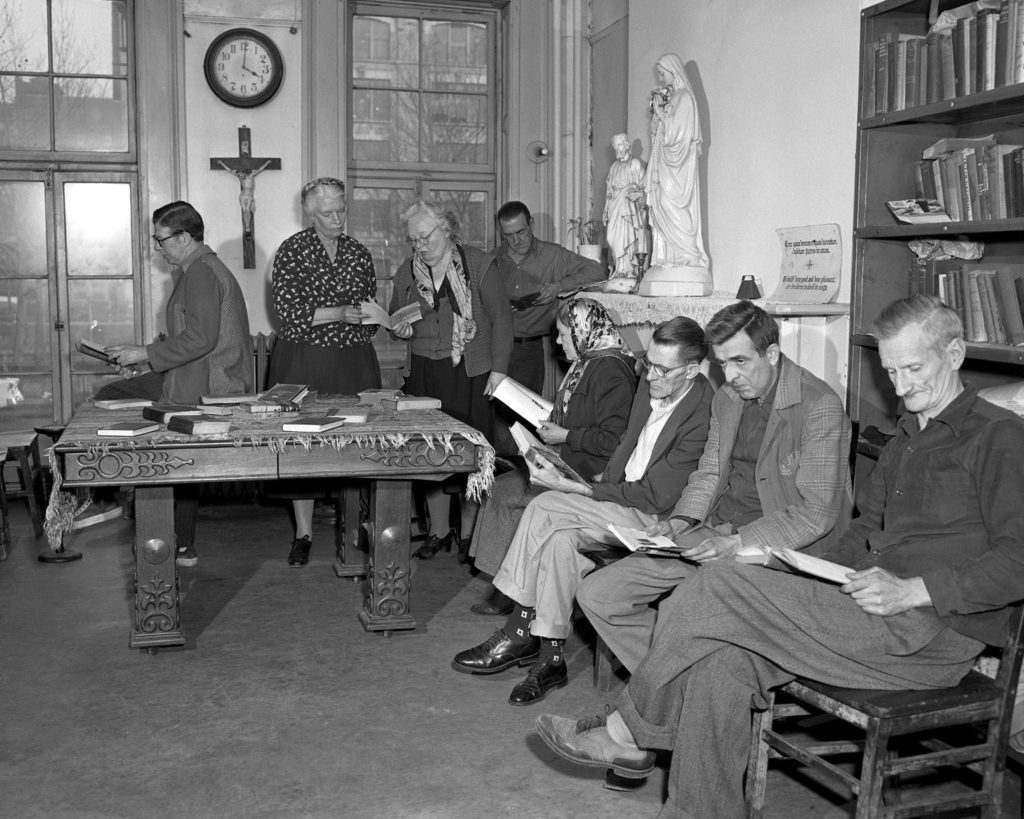
There is, of course, an option out of the meritocracy to take a more relational, community-oriented approach to life that — according to a wide variety of philosophers, scientists, and novelists — promises greater fulfillment and healthier societies. Thinkers like David Brooks, Patrick Deneen, and John Dewey have articulated a counter to this dominant ideology, and local community builders like Dorothy Day and Martin Luther King Jr. have embodied inspiring lives well lived according to these more relational values. This philosophical pathway offers people struggling to find meaning in an atomized society a pathway to a higher purpose.
In our first year running the program on a shoestring budget, 1,800 young people — mostly college seniors — applied to join our fellowship. To date, we’ve had over 5,000 registrants. We have had countless conversations with young people interested in our fellowship who have told us that they never thought returning to their hometown was a viable life choice, but once exposed to our philosophy, they realized a latent desire to serve back home. We have received several emails from folks such as these who, even after not being accepted for our fellowship, told us they were inspired to find a job in their hometown anyways.
So yes, we absolutely have found a desire to define success in terms of homecoming and commitment to community. And LFA’s very founding was a bet on that desire being present, and strong, if only we could summon and channel it. We believe every person has the desire to be loved, to commit to serving others, to be close to family, and to live a life of meaning. And we are providing an alternative to a narrative and life trajectory that many young people––either intrinsically or through hard-won experience––have recognized as insufficient.
We also recognize that we are going to need a lot more than just LFA or a collection of local initiatives to turn the tide. But here are the three elements we believe to be the most important:
First, more programs and institutions must promote the countercultural, but ultimately more appealing narrative, that success does not require leaving and never coming back. This includes having parents, teachers, and community members tell young people that they are valued, that there is a place for them, and that they would love to have them come home.
Second, we must work to ensure that there are pathways for young people to actually act on their convictions to stay or return. As we have observed with our Fellows and applicants, conviction can take you a long way. But it’s insufficient without full-time work that is commensurate with the responsibility and worth of that young person’s commitment to the community.
Third and most critically, we must find the people and communities that are already showing us that a better way of living is possible and amplify their work and shine a light on their lives. When there are enough prominent role models showing that not only is this other way of living possible, but it is also more joyous, then we think a tipping point can be reached. As part of our work, we hope to amplify the stories of our homecomers, including the remarkable impact they can have as a single individual in a place where they are truly needed. In a hopefully not-too-distant future, honor and prestige will be endowed on those who are most enmeshed in relational networks and of most service to their community. And if this state can be reached, it will be revolutionary.
Bilbro: Our national discourse and government have grown increasingly polarized and gridlocked. What challenges has this political polarization created for your work? Have you found that local organizations or governments are better able to find common ground across partisan divides?
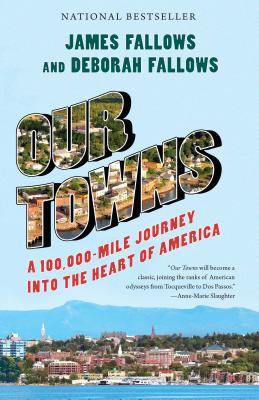
Nail and Shafer-Ray: We have definitely found that local groups are able to find common ground, and that you can go weeks, months, or even years without asking or particularly caring what someone’s national political views are. This is true both for our Fellows in rural and urban communities nationwide, as well as in our own community of Dodge City, Kansas. To be certain, our national politics does matter. But the attention we place on it is not proportional to either the impact it has on our lives (relative to, say, local government and other community institutions) or the agency we have in changing it. And because of the intense polarization and gridlock you mentioned, inserting national politics into local community efforts can be more than divisive––it can undermine the very trust- and community-building initiatives that can help get us out of this mess. Deb and Jim Fallows’ Our Towns, to name just one book, commented frequently on how our national politics has distorted our view of American life, and community life is so much richer when you break beyond the red state and blue state labels.
With a media landscape financially incentivized to hyper-polarize, catastrophize, and dehumanize the other side (as described in the book Enlightenment Now), it sometimes is hard to remember that most political issues are not partisan, and that local politics — where a significant number of key services are provided — are much less corrupted by political polarization. The local governments and nonprofits we work with are generally not thinking in terms of liberal or conservative solutions, but rather common-sense solutions that will help their people. A more common issue we see with our work is not partisanship but civic apathy — if more people centered themselves in the service of their neighbors, their community, and the least among us, our organization likely would not need to exist in the first place.
That being said, we are certainly affected by polarization in the sense that it is as difficult as ever to garner support from Congress or many state legislatures. Further, we are challenged by national funders and partners that might try to pigeonhole us as being part of one side or the other, and we often feel pressure from partners to become a partisan organization. However, we believe for our message to be widely influential, our organization — from our Fellows to our staff to our Board — must reflect the views of the millions of Americans across the political spectrum who are committed to community-based change and relationship building. It is only when people from all different stripes and backgrounds are able to unite under a common banner of service to community and loving their neighbors as themselves that we will start to see meaningful progress toward healing our democracy.

